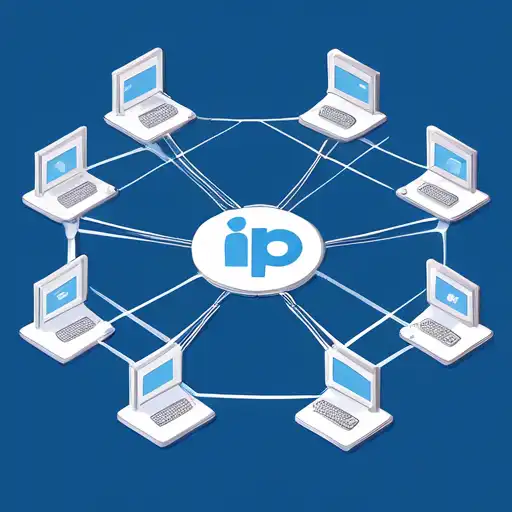Introduction to IP Addresses
In the vast world of networking, understanding IP addresses is fundamental. An IP (Internet Protocol) address is a unique identifier assigned to each device connected to a network, enabling communication between devices. This guide will walk you through the basics of IP addresses, their types, and their importance in networking.
What is an IP Address?
An IP address is a numerical label assigned to each device participating in a computer network that uses the Internet Protocol for communication. It serves two main functions: identifying the host or network interface and providing the location of the host in the network.
Types of IP Addresses
There are two main types of IP addresses: IPv4 and IPv6. IPv4 addresses are 32-bit numbers, typically displayed in decimal format as four octets separated by periods (e.g., 192.168.1.1). Due to the exponential growth of the internet, IPv6 was introduced, which uses 128-bit addresses, allowing for a vastly larger number of unique addresses.
- IPv4: The most widely used IP version, but its limited address space is a significant drawback.
- IPv6: Designed to replace IPv4, offering a much larger address space and improved features.
How IP Addresses Work
IP addresses are assigned to devices either dynamically by a DHCP (Dynamic Host Configuration Protocol) server or statically by a network administrator. When you connect to the internet, your ISP assigns an IP address to your device, allowing it to communicate with other devices worldwide.
The Importance of IP Addresses in Networking
Without IP addresses, devices wouldn't be able to locate and communicate with each other on a network. They are essential for routing traffic across the internet, ensuring that data packets reach their intended destination.
Internal Links
For more information on networking basics, check out our guides on Networking Basics and Understanding DHCP.
Conclusion
Understanding IP addresses is crucial for anyone looking to grasp the basics of networking. Whether you're setting up a home network or pursuing a career in IT, knowing how IP addresses work will provide a solid foundation for further learning.
